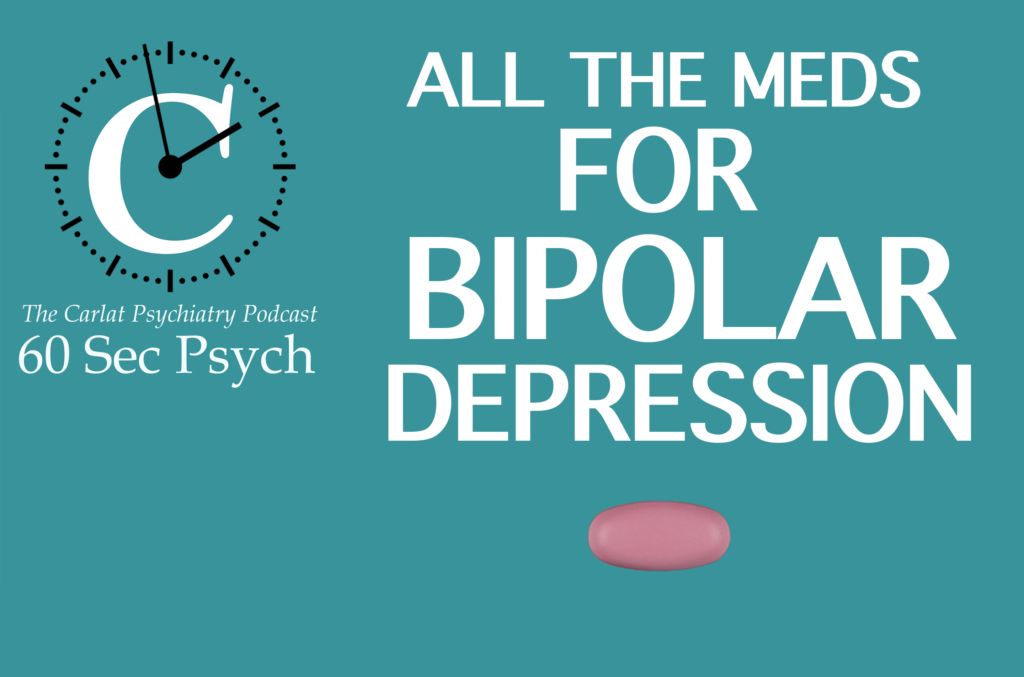All the Meds for Bipolar Depression [60 Sec Psych]
, Volume , Number ,
https://www.thecarlatreport.com/#
A new meta-analysis ranked all the medications for bipolar depression, and we found a surprise in the stack. A review of Bahji A, Ermacora D, Stephenson C, Hawken ER, Vazquez G. Comparative efficacy and tolerability of pharmacological treatments for the treatment of acute bipolar depression: A systematic review and network meta-analysis. J Affect Disord. 2020;269:154‐184. [Link]
Published On: 5/23/20 Duration: 1:32 Rough Transcript: A network meta-analysis of medications for bipolar depression just came out in the Journal of Affective Disorders. Network meta-analyses are controversial because they make a lot of assumptions as they attempt to compare therapies that have never been compared head-to-head. This paper was particularly problematic because it only looked at monotherapy studies, and bipolar depression is usually treated ─ and often studied ─ through add-on therapies. Also, they only looked at acute treatment, but in bipolar disorder the real goal is long-term prevention. So I’ll be very judicious here and will pluck only one result that looks like it’s ready for practice. 1) Besides confirming the FDA approved treatments, they added a surprise: Depakote actually worked well in a few controlled trials of acute bipolar depression, while lithium and carbamazepine did not. It’s likely that lithium didn’t shine here because its main benefits against depression are in prevention, not acute treatment. Last time we covered a network meta-analysis of medications for bipolar depression from the Journal of Affective Disorders. I’ll cover here what the paper found about antidepressant monotherapy. A few antidepressants worked as monotherapy, particularly fluoxetine, but those were small studies many of which came from a single group, Jay Amsterdam’s. The authors cautioned against using antidepressants in the long term, but left open the possibility of using them for 1-2 months to get someone out of the episode. Adding further doubt to the antidepressant route, they quoted an NIMH study from 1984 that found imipramine was just as likely to cause mania when given with lithium as without. This goes against the conventional wisdom that antidepressants are safe as long as a mood stabilizer is on board. I sympathize with that conclusion. Antidepressants seem to work in a minority of bipolar patients, but it’s hard to predict who they are. For many, they make the condition worse. I’ve always been skeptical of the idea that an unsafe treatment is OK as long as it’s given with a protective one. Car accidents aren’t safe just because you have a seatbelt on, and filtered cigarettes do little to protect against cancer. Got feedback? Take the podcast survey.




Leave A Comment
You must be logged in to post a comment.